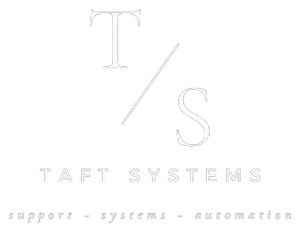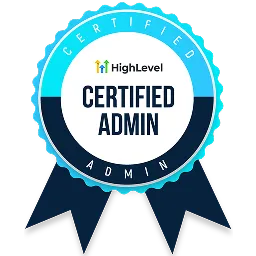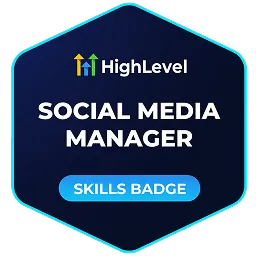
Top 7 Things I Wish I Knew
As an entrepreneur, I understand the significance of sharing my journey, filled with valuable insights and lessons that could inspire others. My path has been one of growth, learning, and occasional setbacks, all of which have shaped my approach to business. Here, I’ll distill some of the most crucial tips that have guided me through the vast entrepreneurial landscape.
My Entrepreneurial Journey: A Story of Resilience and Innovation
Starting a business is never easy, but it's one of the most rewarding challenges you can take on. When I first embarked on this journey over 25 years ago, I had no idea what to expect. Like many entrepreneurs, I started with a vision—a dream to create something valuable that could make a difference. However, the reality of turning that vision into a successful business required much more than just an idea.
From the beginning, I faced numerous obstacles. Funding was scarce, the market was competitive, and there were countless moments where I questioned whether I was on the right path. But through perseverance and a willingness to adapt, I managed to push through these challenges.
One of the most important lessons I learned early on was the value of resilience. In business, things rarely go as planned. You will face setbacks, like we all likely did in 2020, and there will be times when giving up seems like the easiest option. But if you're resilient, if you can keep going even when things are tough, you will find that these challenges are often where the most significant growth happens.
Building a Strong Foundation: The Importance of Planning and Strategy
Before you dive headfirst into your business, it's essential to have a solid plan in place. This doesn't mean you need to have everything figured out—flexibility is key in entrepreneurship—but having a clear strategy will guide your decisions and help you stay focused on your goals.
In my experience, a well-thought-out business plan is like a roadmap. It outlines where you want to go, how you plan to get there, and any delays or roadblocks that may be in your way. More importantly, it forces you to think critically about your business model, target market, and financial projections. Having these elements down pat are crucial for securing funding and making informed decisions as your business grows and flourishes.
Innovate Continuously: Staying Ahead in a Competitive Market
Innovation is at the forefront of any successful business. The market is constantly evolving, and what works today might not work tomorrow. To stay ahead, you need to be continually looking for ways to improve your product or service and find new ways to meet your customers' needs.
During my journey, and the many trials and tribulations, I discovered that innovation isn't just about creating something entirely new. Often, it's about improving existing processes, listening to customer feedback, and being willing to pivot when necessary. By staying adaptable and keeping your finger on the pulse of industry trends, you can position your business to thrive even in the most competitive markets.
Building a Strong Team: The Power of Collaboration
One of my favorite proverbs is “if you want to go fast, go alone, if you want to go far, go together”. No entrepreneur succeeds alone. One of the most critical factors in my success has been building a strong team. Surrounding yourself with people who are not only talented but also share your vision and passion is invaluable.
I learned that hiring isn't just about filling positions—it's about finding people who compliment your strengths and weaknesses. A great team can help you see blind spots, bring new ideas to the table, and support you through the ups and downs of entrepreneurship. Investing in your team, fostering a positive work culture, and encouraging open communication can significantly impact your business's success.
Financial Management: The Backbone of Sustainability
One of the biggest challenges I faced was managing finances effectively. Cash flow is the backbone of any business, and without proper financial management, even the most promising ventures can fail.
I quickly realized the importance of keeping a close eye on finances, from budgeting and forecasting to managing expenses and ensuring a steady cash flow. This involves not only understanding the numbers but also making strategic decisions about where to invest and where to cut costs. Having a clear financial plan helped me avoid potential pitfalls and keep the business on a sustainable growth path.
Networking and Building Relationships: Expanding Your Reach
Networking has played a crucial role in my entrepreneurial journey. As I often say, your network is your net worth. Building relationships with other entrepreneurs, mentors, and industry experts opened doors to new opportunities and provided invaluable advice.
I found that being proactive in attending industry events, joining business associations, and participating in networking groups was key to expanding my reach and finding new partners, customers, and investors. These relationships often led to collaborations that helped the business grow in ways I couldn't have achieved alone.
The Role of Technology: Leveraging Tools for Growth
In today's digital age, technology is a powerful tool that can help businesses scale and operate more efficiently. From customer relationship management (CRM) systems to social media marketing and e-commerce platforms, leveraging the right technology can give your business a competitive edge.
Throughout my journey, I made it a priority to stay updated on the latest technological trends and integrate tools that could streamline operations, enhance customer experience, and boost marketing efforts. By doing so, I was able to focus more on strategic growth and less on manual processes.
Embracing Failure: Learning and Growing from Setbacks
Finally, one of the most important lessons I've learned is that failure is not the end—it's a stepping stone to success. Every entrepreneur will face failure at some point, but it's how you respond to these setbacks that define your future.
Rather than seeing failure as a negative, I chose to view it as an opportunity to learn and improve. Each failure taught me something new, whether it was about the market, my business, or myself as a leader. Embracing these lessons and applying them to future decisions has been crucial to my growth as an entrepreneur.
Conclusion: The Ongoing Journey
Entrepreneurship is not a destination; it's a continuous journey of learning, adapting, and growing. While the path can be challenging, it's also incredibly rewarding. By staying resilient, planning strategically, innovating, building a strong team, managing finances, networking, leveraging technology, and embracing failure, you can navigate the entrepreneurial landscape and achieve your business goals.
Interested in furthering your entrepreneurial journey? Schedule a complimentary discovery call! TaftSystems.com/Discovery-Call














